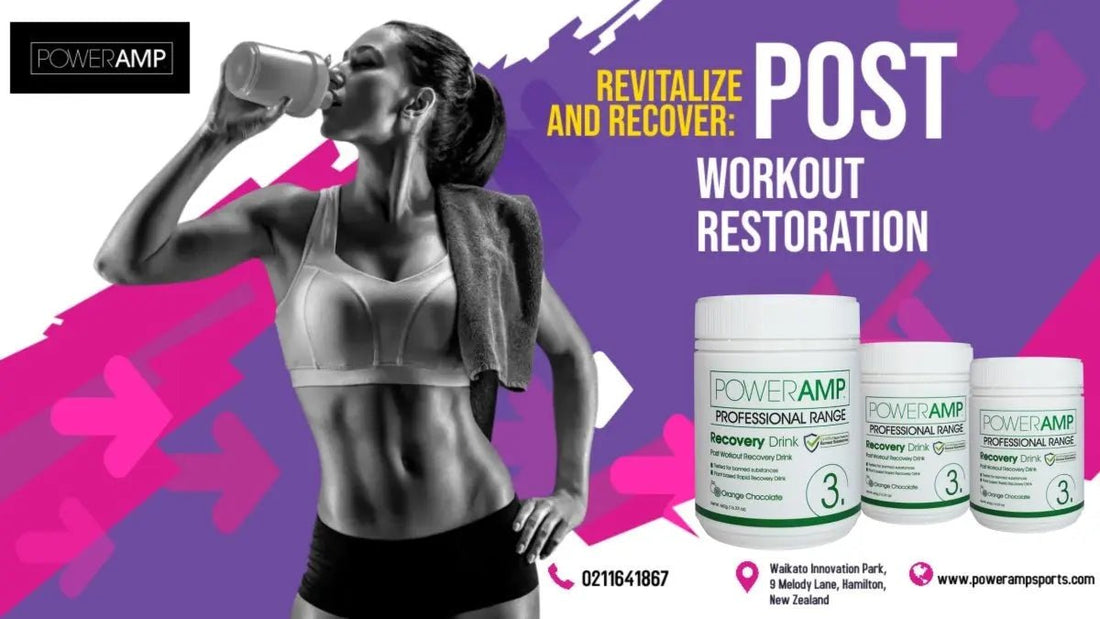Introduction:
Post-workout recovery is a complex process that involves more than just stretching. Here’s everything you need to know about science-backed post-workout techniques to help clients with exercise recovery.
How can I recover faster after a workout?
Recovering faster after a workout is crucial for optimizing your fitness gains, preventing injuries, and ensuring you're ready to perform at your best for the next session. Here are some effective strategies to enhance your post-workout recovery:
- Cool Down: Don't skip the cool-down phase after your workout. Gradually decrease the intensity of your exercise to bring your heart rate and breathing back to normal. This aids in the removal of lactic acid and reduces the risk of muscle soreness.
- Stretching: Engage in static stretching or use a foam roller to target tight muscles. Stretching helps improve flexibility, reduces muscle tension, and enhances blood flow to aid in recovery.
- Hydration: Drink plenty of water throughout your workout and after. Proper hydration is vital for flushing out toxins, transporting nutrients to muscles, and maintaining overall bodily functions.
- Post-Workout Nutrition: Consume a balanced meal or snack containing protein and carbohydrates within an hour of completing your workout. Protein helps repair and rebuild muscles, while carbohydrates replenish glycogen stores, providing energy for future workouts.
Follow us on:
- https://www.instagram.com/powerampsports
- https://www.facebook.com/Powerampsports
- https://twitter.com/PowerAmpSports1
- https://www.pinterest.nz/powerampsports
- https://www.linkedin.com/company/poweramp-sports-nutrition
It’s no secret that exercise can leave anyone feeling physically and mentally tired, which is why post-workout recovery is important to prioritize. But between thinking about sleep habits, sore muscles, and stretching sessions, many people may find exercise recovery overwhelming. Add energy intake to the mix, and this process becomes even more complex, especially since nutrition misinformation is widely prevalent.
Visit our collection: SHOP NOW
Unfortunately, studies show that athletes tend to lack nutrition knowledge and adequate dietary intake, with women having negative perceptions towards carbohydrate intake. As a dietitian, you can help your athletic clients better understand nutrition and the impact it has on performance and recovery. You can also provide curated dietary recommendations and wellness tips that will help boost performance, enhance post-workout recovery, and reduce the risk of injury.
Before we dive into how you can help your clients boost exercise recovery, let’s discuss what to eat after a workout, and why post-workout strategies are important.
Post-workout recovery is crucial for athletes to optimize their performance and overall well-being. Here are five benefits of prioritizing post-workout recovery:
Overall, post-workout recovery is essential for athletes to enhance their performance, prevent injuries, and maintain overall physical and mental well-being. Post workout recovery drink in Auckland It enables athletes to train consistently and achieve their peak potential.
Post-workout nutrition is crucial for several reasons, as it plays a significant role in maximizing the benefits of exercise and supporting overall fitness and health. Here are some key reasons why post-workout nutrition is important:
- Muscle Recovery: During exercise, especially intense or resistance training, muscles undergo micro tears and depletion of glycogen (stored energy). Proper post-workout nutrition helps in repairing and rebuilding these damaged muscles, leading to quicker recovery and reduced muscle soreness.
- Muscle Growth: For that seeking muscle gain, post-workout nutrition is essential. Consuming the right nutrients after a workout provides the body with the necessary building blocks (amino acids from proteins) to support muscle protein synthesis, promoting muscle growth and adaptation.
- Glycogen Replenishment: Carbohydrates are a primary source of energy during exercise, and the body's glycogen stores can become depleted after intense physical activity. Consuming carbohydrates post-workout helps replenish these stores, ensuring you have enough energy for your next training session.
- Protein Synthesis: Protein consumption after a workout stimulates muscle protein synthesis, leading to increased muscle mass and strength over time. It also helps to offset the breakdown of muscle protein that occurs during exercise.
- Nutrient Delivery: After exercise, blood flow to muscles is increased, making it an optimal time to deliver nutrients to the muscles for repair and recovery. Consuming nutrients in the post-workout window ensures they are efficiently transported to the muscles.
- Reduce Muscle Breakdown: After a workout, the body can enter a catabolic state where muscle breakdown may exceed muscle synthesis. Consuming nutrients like protein helps prevent this imbalance, preserving muscle mass.
- Immune Support: Intense exercise can temporarily suppress the immune system. Proper post-workout nutrition, particularly foods rich in vitamins and minerals, can aid in supporting immune function and reducing the risk of illness.
- Refueling Energy Stores: Replenishing energy stores after a workout is vital to prevent fatigue and support optimal performance in subsequent workouts or daily activities.
- Hydration: Adequate hydration is critical for overall performance and recovery. Proper post-workout nutrition can include fluids to help rehydrate the body after sweating.
It's important to note that the post-workout nutrition needs can vary depending on the individual's goals, the type and intensity of the exercise performed, and their overall diet and health status. A well-balanced post-workout meal or snack should ideally contain a combination of carbohydrates, protein, and some healthy fats to provide the necessary nutrients for recovery and replenishment. Timing is also essential, as consuming nutrients within the first hour after exercise is typically recommended for optimal results.
Visit our collection: SHOP NOW


Leave a reply
Nunc vehicula quam semper odio varius tincidunt. Vestibulum ante ipsum primis in faucibus orci luctus et ultrices posue.
Please note, comments need to be approved before they are published.